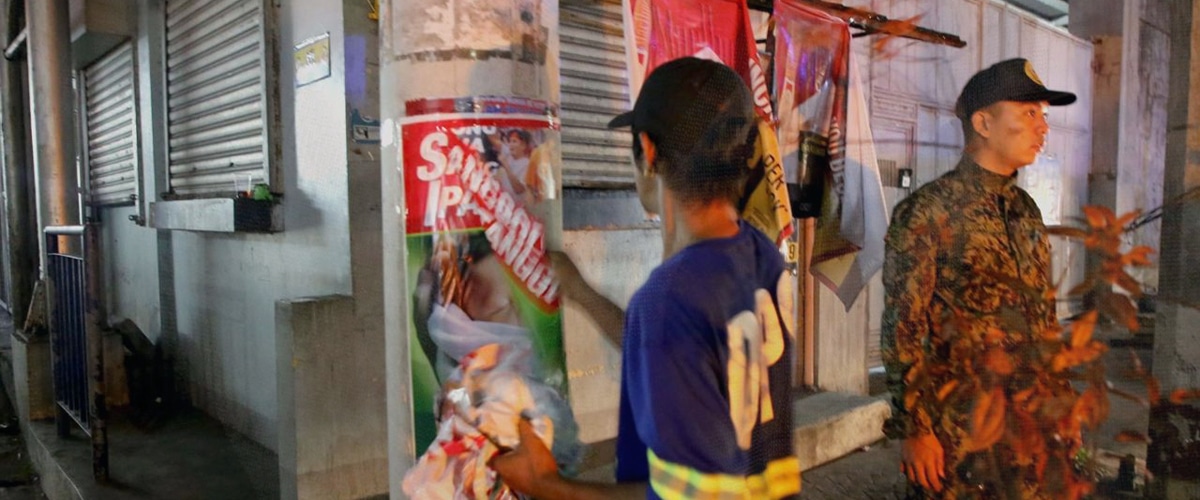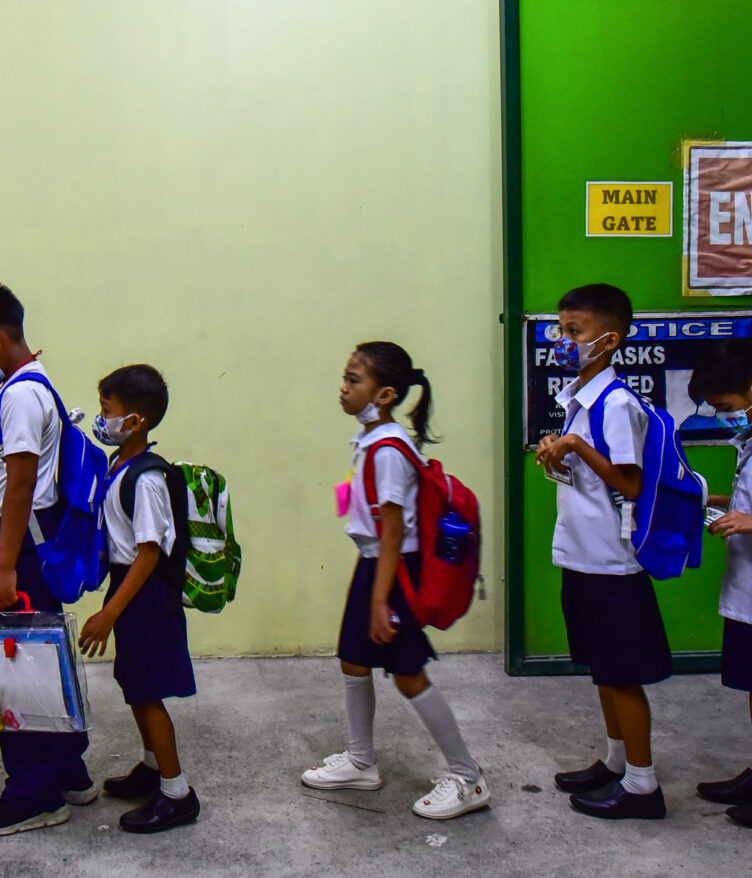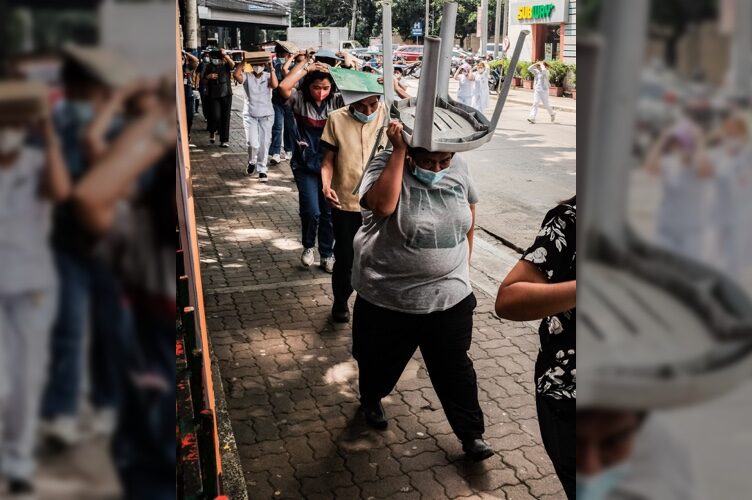GROWING up in the Philippines, “epal” is one of the terms millennials and Gen Zs used to hear and say a lot in their childhood.
As children, they used it to describe another kid who tried to ruin the game they were not even part of. It was also the same term they called their annoying schoolmate who meddled in somebody else’s business to get attention or butted into other people’s conversation and gave unsolicited opinions.
“Epal” is still often used today to refer to individuals who are attention seekers and credit grabbers. Several of them are making noise now, especially since the 90-day campaign period for #BotoNgKabataan2025 midterm elections has begun.
Who are ‘epal’ candidates?
“Epal” can be associated with the local political scene, describing a certain politician who plasters their name, image, or logo to government projects and programs intended for public use as if they are the ones who funded them and not taxpayers.
This is how several Gen Zs, the youngest generation of eligible voters, described “epal” candidates running for government office in the upcoming midterm polls.
“For me, ‘epal’ [is someone who has] over-the-top campaign materials [and] large tarpaulins that cover great sceneries. One would be considered ‘epal’ if they tag their names on [government] projects and programs, making it look like the budget came from their pockets,” John Lewis Antonino Nardo, a 19-year-old public administration student, told republicasia.
Allen Gicana, a 22-year-old English language studies student, agreed with Nardo. She stressed that this type of candidate “prioritizes self-promotion” over genuine public service.
Meanwhile, Sarah Sol, a 20-year-old medical technology student, and Mark Jairo Maaño, a 22-year-old public administration student, have different definitions of “epal” candidates.
For Sol, these candidates have “a questionable background,” including those facing criminal charges and lacking relevant political experience.
Maaño, on the other hand, said the “epal” candidates are those who run for office just because they are popular.
“I observed that some of the candidates don’t even have a background in basic understanding of the constitution and any form of legislation. We are becoming a laughing stock because of this,” he shared with republicasia, adding that some even seek higher government positions despite their criminal charges.
A ‘mockery’ of PH government
The “epal” candidates are not automatically those flagged by the Commission on Elections (Comelec) as “nuisance” candidates.
The poll body has certain grounds to declare an aspirant a nuisance, based on Section 69 of the Omnibus Election Code. A candidate is considered a nuisance if their certificate of candidacy (COC) is filed to put the election process in mockery or disrepute, causes confusion among voters by the similarity of the names of the registered candidates, or by circumstances or acts which demonstrate that the candidate has no bona fide intention to run for office.
These aspirants, regardless of their backgrounds, may join the elections as long as they have submitted notarized and accomplished COCs. No other documents, like birth certificates, are needed. Before the campaign period started, the poll body already declared several aspirants as nuisance bets.
While there is no disqualification for “epal” candidates in the Omnibus Election Code, the Gen Z voters said they make “a mockery” of the Philippine government.
“Running for office should be a call of leadership with accountability and transparency,” said Maaño, adding that politicians should contribute to legislation and ensure there are checks and balances in the government.
Sol, meanwhile, said the “epal” candidates will only “dig holes” in the upper and lower chambers of Philippine Congress.
“We do not need these unqualified, power-hungry candidates as lawmakers,” she stressed. What the country needs, she said, are “qualified” candidates who genuinely want to serve the public.
“Also, kung ang rason nila ay para makatulong sa public, there are a lot of ways to contribute to society beyond entering politics,” Sol added.
For Nardo, these “epal” candidates “should not win” the elections.
“They all act nationalistic and ‘maka-masa’ [during] the campaign period. They always step one foot forward then forget all their promises [once they got] the vote,” he said.
Law vs. premature campaigning
The campaign period for the 2025 polls for national candidates (senatorial hopefuls and party-list groups) began on February 11 and will end on May 10. It will be followed by those running for local posts, from March 28 to May 10.
But even before the campaign period began, several campaign materials were already seen on the streets and highways to woo voters.
Currently, there is no law banning premature campaigning. The Comelec previously said that aspirants can only be called candidates and be held liable for election offenses upon the start of the campaign period, citing the 2009 ruling of the Supreme Court (SC).
“Ibig sabihin, lahat po ng mga ginagawa nila ngayon, wala pong election law na mag-go-govern sa kanila. Wala pa pong prohibition, wala pong violation,” explained Comelec Chair George Garcia in January. He, however, advised politicians to not underestimate the voters’ intelligence.
The Gen Z voters suggested that there should be a law prohibiting premature campaigning to avoid flooding public spaces with the politicians’ banners and posters.
“These candidates often seek undue attention and manipulate public perception,” Sol said. “Implementing a law is important para we can filter individuals who might exploit their positions for personal gain or fame. This way, we can protect the electorate from potential deception.”
Gen Zs’ way to scrutinize candidates
With all these campaign materials filling the streets and highways and flooding their social media feeds, how do these Gen Z voters examine their candidates carefully?
Nardo advised his fellow Gen Z voters to study their candidates’ platforms, ideas, and even political peers.
Sol and Gicana echoed this and said that one can verify their candidates’ backgrounds by researching about them through credible online sources.
Gicana highlighted that Gen Z voters are more “digitally aware and socially conscious,” which is why they do not easily believe what a candidate says and tolerate their “epal moves.”
“We also analyze how a candidate performs in debates and unscripted interviews; their ability to answer tough questions, explain policies, and how they defend their stance on issues more than catchy slogans,” she said.
The Comelec has also intensified its campaign against vote-buying, issuing a resolution that allows warrantless arrest of vote-buyers and vote-sellers. Vote-buying and vote-selling are among the election offenses under Section 261 of the Omnibus Election Code.
The #BotoNgKabataan2025 midterm polls will take place on May 12, 2025.
How useful was this post?
Click on a star to rate it!
Average rating 4.7 / 5. Vote count: 3
No votes so far! Be the first to rate this post.
We are sorry that this post was not useful for you!
Let us improve this post!
Tell us how we can improve this post?









